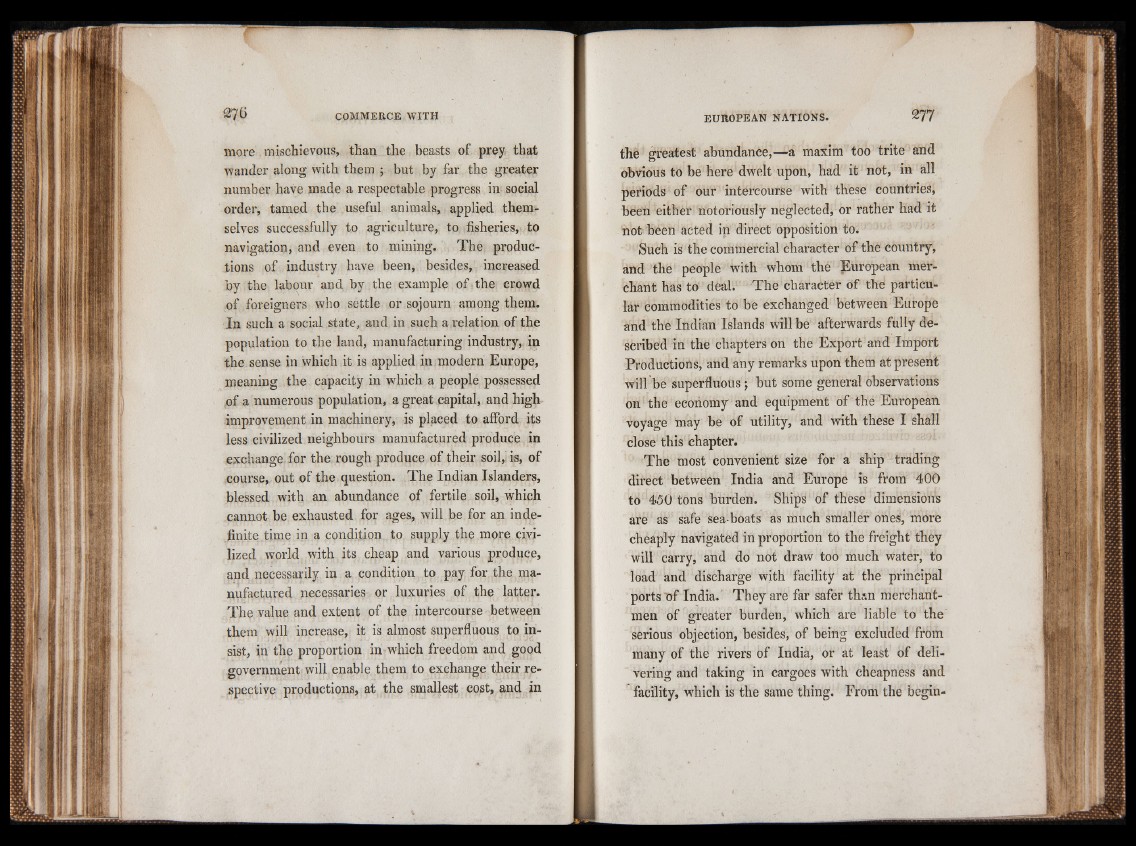
more mischievous, than the beasts of prey that
wander along with them ; but by far the greater
number have made a respectable progress in social
order, tamed the useful animals, applied themselves
successfully to agriculture, to fisheries, to
navigation, and even to mining. The productions
of industry have been, besides, increased
by the labour and by the example of y the crowd
of foreigners who settle or sojourn among them.
In such a social state, and in such a relation of the
population to the land, manufacturing industry, in
the sense in which it is applied in modern Europe,
meaning the capacity in which a people possessed
of a numerous population, a great capital, and high
improvement in machinery, is placed to afford its
less civilized neighbours manufactured produce in
exchange for the rough produce of their soil, is, of
course, out of the question. The Indian Islanders,
blessed with an abundance of fertile soil, which
cannot be exhausted for ages, will be for an indefinite
time in a condition to supply the more civilized
world with its cheap and various produce,
and necessarily in a condition to pay for the manufactured
necessaries or luxuries of the latter.
The value and extent of the intercourse between
them will increase, it is almost superfluous to insist,
in the proportion in-which freedom and good
government will enable them to exchange their respective
productions, at the smallest cost, and in
thè greatest abundance,—a maxim too trite and
obvious to be here dwelt upon, had it not, in all
periods of our intercourse with these countries,
been either notoriously neglected, or rather had it
not been acted in direct opposition to.
Such is the commercial character of the country,
and thè people with whom the European merchant
has to deal. The character of the particular
commodities to be exchanged between Europe
and the Indian Islands will be afterwards fully described
in the chapters on the Export and Import
Productions, and any remarks upon them at present
will be superfluous ; but some general observations
on the economy' and equipment of the European
voyage may be of utility, and with these I shall
close this chapter.
The most convenient size for a ship trading
direct between India and Europe is from 400
to 450 tons burden. Ships of these dimensions
are as safe sea-boats as much smaller ones, more
cheaply navigated in proportion to the freight they
will carry, and do not draw too much water, to
load and discharge with facility at the principal
ports nf India.' They are far safer than merchantmen
of greater burden,o which are liable to the serious objection, besides, of being excluded from
many of the rivers of India, or at least of delivering
and taking in cargoes with cheapness and
facility, which is the same thing. From the begin